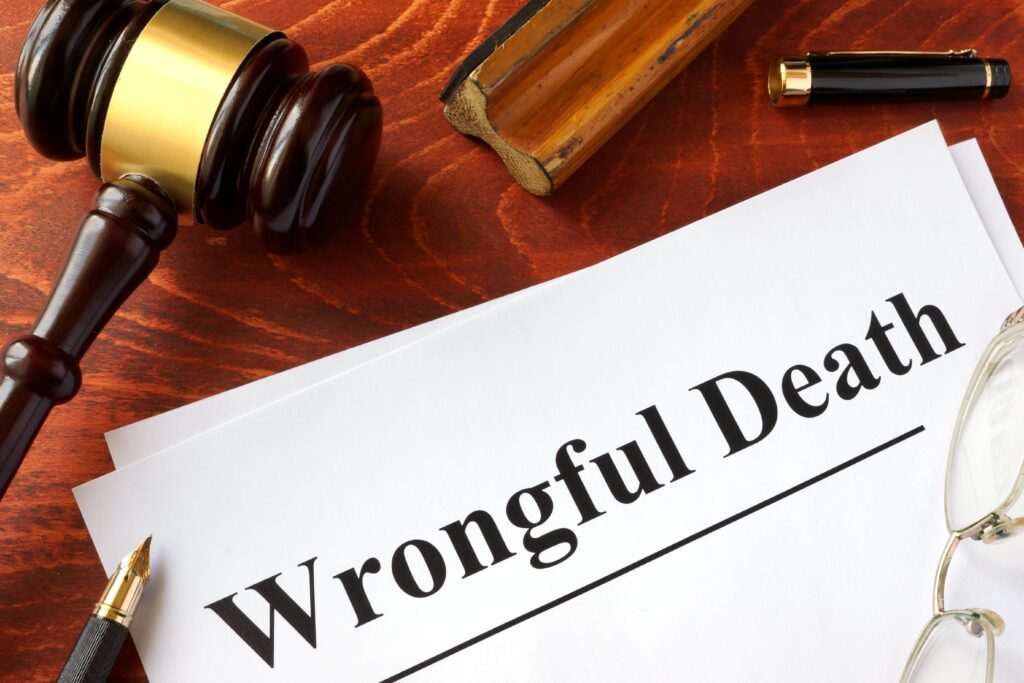Who Is Eligible to File a Wrongful Death Claim In Maryland?
If a person dies as a result of any party’s wrongdoing or negligence, the surviving family members or trust has the right to file a wrongful death claim against that party. However, determining eligibility to file a wrongful death claim in Maryland can get a bit complex.
Many factors influence the case such as what types of damages are available and the time limit on filing a claim. It helps to have an understanding of wrongful death lawsuits in Maryland so you know what is required to get compensation for your loss.
What Is “Wrongful Death” in Maryland?
According to Maryland law, a “wrongful death” is a death caused by neglect, act, or default, including a felonious act. A wrongful death lawsuit is a type of personal injury case where the surviving family members of an accident victim pursue compensation for their loved one’s funeral expenses, medical costs, pain and suffering, and other losses.
Eligibility to File For a Wrongful Death Claim In Maryland
Filing a wrongful death claim or lawsuit is not an option for everyone. Some laws restrict who can file a claim based on their relationship with the deceased.
Under Maryland law, the primary beneficiaries eligible to file a wrongful death suit include the deceased’s surviving spouse, parents, and children. If none of the primary beneficiaries makes a suit, then secondary beneficiaries eligible to file a wrongful death claim can be eligible to file. This includes anyone related to the deceased person by marriage or blood and who was substantially dependent on the deceased.
There is also a third category of eligible claimants. The tertiary beneficiaries eligible to file a wrongful death claim include distant relatives who are financially dependent on the deceased. This includes grandparents, cousins, nephews, and nieces.

Role of Personal Representative in a Wrongful Death Lawsuit
The personal representative of the deceased’s estate plays a key role in wrongful death cases. They can file the lawsuit on their behalf and ensure the damages awarded are fairly distributed among the beneficiaries based on their relationship with the deceased. The personal representative doesn’t have to bear all the responsibility alone — they can seek legal counsel from an experienced attorney who can guide them through the process.
What If the Decedent Had a Will?
The will of the deceased person is a key factor in determining who is eligible to file a wrongful death claim. If the deceased had a will, the personal representative or executor of the will can wrap up the estate and distribute the assets accordingly. If the will is silent, then the award of the suit gets paid according to Maryland state laws.
Types of Damages Available In Maryland Wrongful Death Case
In a successful wrongful death lawsuit, compensation can include damages for the emotional pain and suffering due to the death of the deceased, financial contributions the deceased would have made to the plaintiff, loss of companionship, and several other types of compensation. The court may adjust the compensation according to the loss each party suffered due to the death.
Mayland has a cap on non-economic damages that cannot be measured by receipts or bills. This includes emotional distress, trauma, pain, and suffering. The cap in 2023 on pain and suffering is set at $935,000. There is no cap on punitive damages or economic expenses, such as medical expenses and lost wages.
Time Limit to File Maryland Wrongful Death Lawsuits
A wrongful death lawsuit or claim must be filed within a specified period, which is also referred to as the statute of limitations. In Maryland, the wrongful death statute of limitations is three years from the date of the person’s death.
There are a few exceptions to the rule. For example, if the person died from an occupational illness such as exposure to toxic substances in the workplace, then the statute of limitations can be extended to ten years from the date of the death or three years from the date the occupational disease was identified as the cause of death.
If you need to file a lawsuit against a local or state government entity, you will probably need to file a “notice of claim” within a fairly short period from the wrongful death. Similarly, the statute of limitations for a case against the federal government could have special rules. It is best to consult with a wrongful death attorney on how much you have to file a claim.
Get Legal Advice for Wrongful Death Claims
A wrongful death lawsuit depends on several factors, including whether you have solid evidence to support your claim. You can significantly increase your chances of success in wrongful death lawsuits by having an experienced and skilled attorney.
Filing a wrongful death lawsuit is often a complex process and the state statutes can be challenging to understand. However, with an attorney on your side, you can get guidance each step of the way. They can help you with different aspects of wrongful death lawsuits, including investigation and evidence gathering. To ensure you get full and fair compensation, you need an accurate valuation of damages. The attorney can assess your case to guide you on what compensation you can expect.
The most important benefit of hiring an experienced lawyer is that they can provide you with the emotional support you need to get through these challenging times of losing a loved one while you can focus on healing from the loss. They can handle the time-consuming aspects of your case.
Contact Parker, Pallett, Slezak & Russell, LLC at (410) LAW-YERS.







